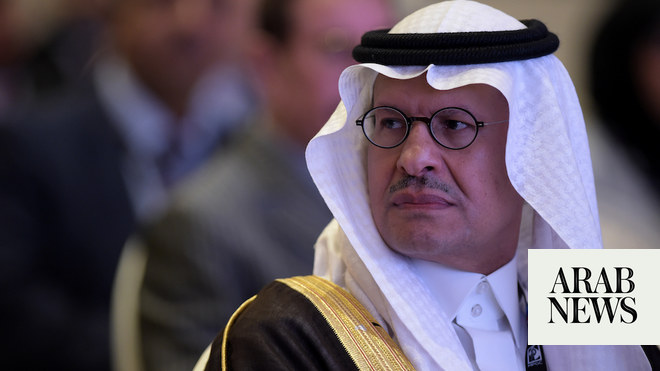
Prince Abdulaziz says OPEC+ will be needed to bring about ‘orderly adjustments’ in the future
RIYADH: Saudi Energy Minister Prince Abdulaziz bin Salman has said Riyadh was “hoping to work out an agreement with OPEC+ which includes Russia.”
Talking to Financial Times, the minister said politics should be kept out of OPEC+ and insisted the “world should appreciate the value” the alliance of oil producers.
Oil prices have reached their highest levels in a decade, a set of OPEC+ production quotas put in place in April 2020 is set to expire in three months.
Prince Abdulaziz said it was too early to say what a new agreement might look like given the uncertainties in the market, but added that OPEC+ would increase production “if the demand is there.”
“With the havoc you see now it’s too premature to try to pinpoint (an agreement),” he said in the interview. “But what we know is what we have succeeded to deliver is sufficient for people to say so far there is a merit, there is a value of being there, working together.”
OPEC+ has stuck to its 2020 agreement, under which the alliance members raise total production each month by the modest amount of 430,000 barrels a day. But Russia’s output has dropped since the start of the Ukraine war, falling from about 11 million barrels per day in March to an average of 10 million bpd in April, according to data provider OilX.
Prince Abdulaziz blamed soaring prices on a lack of global refining capacity and taxes. “The determinant of the market is refinery capacity, and how do you unlock it,” he said. “At least for the last three years, the whole world lost around 4 million barrels of refining capacity, 2.7 million of them just from the beginning of COVID-19.”
The Saudi energy minister said the OPEC+ alliance would be needed to bring about “orderly adjustments” in the future amid uncertainty about coronavirus lockdowns in China, global growth and supply chains.
He said to ease bottlenecks in production and refinery capacity governments have to encourage the industry to invest in hydrocarbons even as nations switch to cleaner energy sources. “This situation needs people to sit together, focus, take out the masquerade and the so-called political correctness … it’s about trying to relate to existing reality and find remedies to it.”










